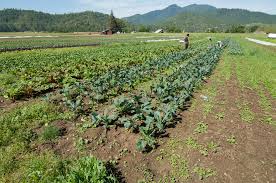Fertilizers as used in Nigeria is substance used to improve or maintain growth of plants or productivity of soil. There are various forms of fertilizers imported to Nigeria annually. Such variety includes organic fertilizer, inorganic fertilizer, straight fertilizers, plant nutrient, mixed fertilizers, etc. The licensing for fertilizer importation falls within the purview of NAFDAC and the Federal Ministry of Agriculture. Import and export business is evolving, and will keep on doing so. Consequently, the purpose of this article is to help importers keep up to date with fertilizer importation requirements.
Table of Contents
ToggleRead Also: FORM M NIGERIA: HOW TO PROCESS AND OBTAIN IT
FERTILIZER IMPORTATION: REQUIREMENT
NAFDAC, the agency responsible for issuing regulatory documents for drug importation gives the following guideline.
Application for the registration of fertilizers shall be submitted with the following:
- Power of Attorney or a contract manufacturing agreement between the manufacturer and the applicant duly notarized in the country of origin to register the fertilizer in Nigeria.
- Certificate of manufacture and free sale of the fertilizer from the statutory body responsible for the safety of the fertilizers in the country of origin.
- Company’s certificate of incorporation in Nigeria.
- Evidence of trade mark registration
- Original certificate of analysis of the fertilizer.
- Field trial report of trials conducted in Nigeria by an approved research institute in more than 2 agro ecological zones for 2 cropping seasons to determine the biological efficacy and effectiveness of the fertilizers (g)
- The percentage composition of the active ingredient(s).
- Evidence of substantiation of any special labelling claims on the character, quality and safety of the fertilizer.
- Invitation letter for Good Manufacturing Practice (GMP) inspection from overseas manufacturers; or
- Application letter for inspection of local production facility for fertilizers manufactured in Nigeria.
- (k) A notarised declaration as prescribed by the Agency.
- Specimen labels of the fertilizer.
- Adequate samples of the fertilizer as determined by the Agency.
- Dossier in the format prescribed by the Agency.
- Safety Data Sheet (SDS)
UPDATED INFO FOR FERTILIZER IMPORTATION:
The Nigeria Central Bank of Nigeria (CBN) has added fertilizers to the list of items/goods for foreign exchange allocation.
Yes, in its circular with date 10 October, 2018, the CBN said the inclusion of fertiliser on the list of commodities no- valid-for-foreign-exchange is effective from Friday 7 December 2018.
What does the inclusion of fertilizer in this list or not-valid-for-forex mean? Well, this means that obtaining NAFDAC Importation Permit is not all that is required to import fertilizers. Importers will from henceforth, first of all write a letter to the CBN, requesting for approval to import fertilisers.
For detail on CBN Approval Letter, and the list of other commodities in the list of not-valid-for-forex, see my article for CBN 41 ITEMS NOT VALID-FOR-FOREX: HOW TO IMPORT.
DOES THIS DIRECTIVE AFFECT IMPORTERS WHO ALREADY INITIATED FERTILISERS IMPORT?
In one word no. The same circular noted as stated below:
“CBN will ensure that transactions (Form M) on fertiliser for which payments are outstanding are settled at the appropriate settlement dates”
Conclusion:
To import fertiliser into Nigeria space, importers shall first of all obtain approval from the central bank of Nigeria. Furthermore, the CBN approval letter, along with NAFDAC Importation Permit is used to obtain Form M and PAAR necessary for importation.

